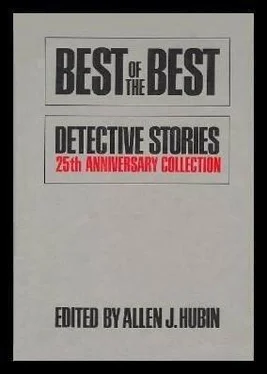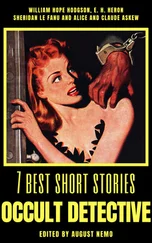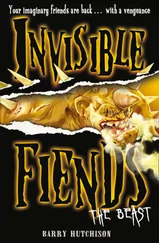Stephen Barr - Best of the best detective stories - 25th anniversary collection
Здесь есть возможность читать онлайн «Stephen Barr - Best of the best detective stories - 25th anniversary collection» весь текст электронной книги совершенно бесплатно (целиком полную версию без сокращений). В некоторых случаях можно слушать аудио, скачать через торрент в формате fb2 и присутствует краткое содержание. Город: New York, Год выпуска: 1971, ISBN: 1971, Издательство: E.P. Dutton & Co., Жанр: Детектив, на английском языке. Описание произведения, (предисловие) а так же отзывы посетителей доступны на портале библиотеки ЛибКат.
- Название:Best of the best detective stories: 25th anniversary collection
- Автор:
- Издательство:E.P. Dutton & Co.
- Жанр:
- Год:1971
- Город:New York
- ISBN:978-0-525-06450-3
- Рейтинг книги:5 / 5. Голосов: 1
-
Избранное:Добавить в избранное
- Отзывы:
-
Ваша оценка:
- 100
- 1
- 2
- 3
- 4
- 5
Best of the best detective stories: 25th anniversary collection: краткое содержание, описание и аннотация
Предлагаем к чтению аннотацию, описание, краткое содержание или предисловие (зависит от того, что написал сам автор книги «Best of the best detective stories: 25th anniversary collection»). Если вы не нашли необходимую информацию о книге — напишите в комментариях, мы постараемся отыскать её.
Best of the best detective stories: 25th anniversary collection — читать онлайн бесплатно полную книгу (весь текст) целиком
Ниже представлен текст книги, разбитый по страницам. Система сохранения места последней прочитанной страницы, позволяет с удобством читать онлайн бесплатно книгу «Best of the best detective stories: 25th anniversary collection», без необходимости каждый раз заново искать на чём Вы остановились. Поставьте закладку, и сможете в любой момент перейти на страницу, на которой закончили чтение.
Интервал:
Закладка:
Three: There was nothing to prove that the wine in the bottle corresponded to the label; and wine experts were naturally reluctant to taste it for us. All they could say from the smell was that it was a Tokay of sorts. This, of course, made it more difficult for us. In fact I may say that neither from the purchase of the wine nor the nature of the poison did we get any clue.
We had, then, the following picture of the murderer. He had a cause of grievance, legitimate or fancied, against Lord Hedingham, and did not scruple to take the most terrible revenge. He knew that Sir William Kelso was a friend of His Lordship and called him Tommy, and that he might reasonably give him a bottle of wine on his birthday. He did not know that Sir William would be dining there that night; that is to say, even as late as six o’clock that evening , he did not know. He was not likely, therefore, to be anyone at present employed or living in Lord Hedingham’s house. Finally, he had had an opportunity to get hold of a card of Sir William’s.
As it happened, there was somebody who fitted completely into this picture. It was a fellow called — wait a bit — Merrivale, Medley — oh, well, it doesn’t matter. Merton, that was it. Merton. He had been His Lordship’s valet for six months, had been suspected of stealing and had been dismissed without a character reference. Just the man we wanted. So for a fortnight we searched for Merton. And then, when at last we got on to him, we discovered that he had the most complete alibi imaginable. (The superintendent held up his hand, and it came into my mind that he must have stopped the traffic as a young man with just that gesture.) Yes, I know what you’re going to say, what you detective-story writers always say — the better an alibi, the worse it is. Well, sometimes, I admit; but not in this case. For Merton was in jail, under another name, and he had been inside for the last two months. And what do you think he was suspected of, and was waiting trial for? Oh, well, of course you guess; I’ve as good as told you. He was on a charge of murder — and murder, mark you, by poison.
“Good heavens!” I interjected. I seized the opportunity to refill my friend’s glass. He said, “Exactly,” and took a long drink.
You can imagine (he went on) what a shock this was to us. You see, a certain sort of murder had been committed; we had deduced that it was done by a certain man, without knowing whether he was in the least capable of such a crime; and now, having proved to the hilt that he was capable of it, we had simultaneously proved that he didn’t do it.
I said to Totman, “Let’s take a couple of days off, and each of us think it out, then pool our ideas and start afresh.”
Totman frisked up his little mustache and laughed in his conceited way. “You don’t think I’m going to admit myself wrong, do you, when I’ve just proved I’m right?” (Totman saying “I,” when he had got everything from me!) “Merton’s my man. he’d got the bottle ready, and somebody else delivered it for him. That’s all. He had to wait for the birthday, you see, and when he found himself in prison, his wife or somebody—”
“—took round the bottle, all nicely labeled ‘Poison; not to be delivered till Christmas Day.’ ” I had to say it, I was so annoyed with him.
“Don’t be more of a damned fool than you can help,” he shouted, “and don’t be insolent, or you’ll get into trouble.”
I apologized humbly and told him how much I liked working with him. He forgave me, and we were friends again. He patted me on the shoulder.
“You take a day off,” he said kindly, “you’ve been working too hard. Take a bus into the country and make up a good story for me; the story of that bottle, and how it came from Merton’s lodging to Brook Street, and who took it and why. I admit I don’t see it at present, but that’s the bottle, you can bet your life. I’m going down to Leatherhead. Report here on Friday morning, and we’ll see what we’ve got. My birthday as it happens, and I feel I’m going to be lucky.” Leatherhead was where an old woman had been poisoned. That was the third time in a week he’d told me when his wretched birthday was.
I took a bus to Hampstead Heath. I walked round the Leg of Mutton Pond twenty times. And each time that I went round. Totman’s theory seemed sillier than the last time. And each time I felt more and more strongly that we were being forced into an entirely artificial interpretation of things. It sounds fantastic, I know, but I could almost feel the murderer behind us, pushing us along the way he wanted us to go.
I sat down on a seat and filled a pipe, and I said, “Right! The murderer’s a man who wanted me to believe all that I have believed. When I’ve told myself that the murderer intended to do so-and-so, he intended me to believe that, and therefore he didn’t do so-and-so. When I’ve told myself that the murderer wanted to mislead me, he wanted me to think he wanted to mislead me, which meant that the truth was exactly as it seemed to be. Now then, Fred, you’ll begin all over again, and you’ll take things as they are and won’t be too clever about them. Because the murderer expects you to be clever, and wants you to be clever, and from now on you aren’t going to take your orders from him .”
And of course, the first thing which leaped to my mind was that the murderer meant to murder the butler!
It seemed incredible now that we could ever have missed it. Didn’t every butler sample his master’s wines? Why, it was an absolute certainty that Perkins would be the first victim of a poisoned bottle of a very special vintage. What butler could resist pouring himself out a glass as he decanted it?
Wait, though. Mustn’t be in a hurry. Two objections. One: Perkins might be the one butler in a thousand who wasn’t a wine-sampler. Two: Even if he were like any other butler, he might be out of sorts on that particular evening and have put by a glass to drink later. Wouldn’t it be much too risky for a murderer who only wanted to destroy Perkins, and had no grudge against Lord Hedingham’s family, to depend so absolutely on the butler drinking first?
For a little while this held me up, but not for long. Suddenly I saw the complete solution.
It would not be risky if (a) the murderer had certain knowledge of the butler’s habits; and (b) could, if necessary, at the last moment, prevent the family from drinking. In other words, if he were an intimate of the family, were himself present at the party, and, without bringing suspicion on himself, could bring the wine under suspicion.
In other words, only if he were Sir William Kelso! For Sir William was the only man in the world who could say, “Don’t drink this wine. I’m supposed to have sent it to you, and I didn’t, so that proves it’s a fake.” The only man.
Why hadn’t we suspected him from the beginning? One reason, of course, was that we had supposed the intended victim to be one of the Hedingham family, and of Sir William’s devotion to his sister, brother-in-law, nephew and nieces, there was never any doubt. But the chief reason was our assumption that the last thing a murderer would do would be to give himself away by sending his own card round with the poisoned bottle. “The last thing a murderer would do” — and therefore the first thing a really clever murderer would do.
To make my case complete to myself, for I had little hope as yet of converting Totman, I had to establish motive. Why should Sir William want to murder Perkins? I gave myself the pleasure of having tea that afternoon with Lord Hedingham’s housekeeper. We had caught each other’s eye on other occasions when I had been at the house, and — well, I suppose I can say it now — I had a way with the women in those days. When I left, I knew two things. Perkins had been generally unpopular, not only downstairs, but upstairs. “It was a wonder how they put up with him.” And Her Ladyship had been “a different woman lately.”
Читать дальшеИнтервал:
Закладка:
Похожие книги на «Best of the best detective stories: 25th anniversary collection»
Представляем Вашему вниманию похожие книги на «Best of the best detective stories: 25th anniversary collection» списком для выбора. Мы отобрали схожую по названию и смыслу литературу в надежде предоставить читателям больше вариантов отыскать новые, интересные, ещё непрочитанные произведения.
Обсуждение, отзывы о книге «Best of the best detective stories: 25th anniversary collection» и просто собственные мнения читателей. Оставьте ваши комментарии, напишите, что Вы думаете о произведении, его смысле или главных героях. Укажите что конкретно понравилось, а что нет, и почему Вы так считаете.












